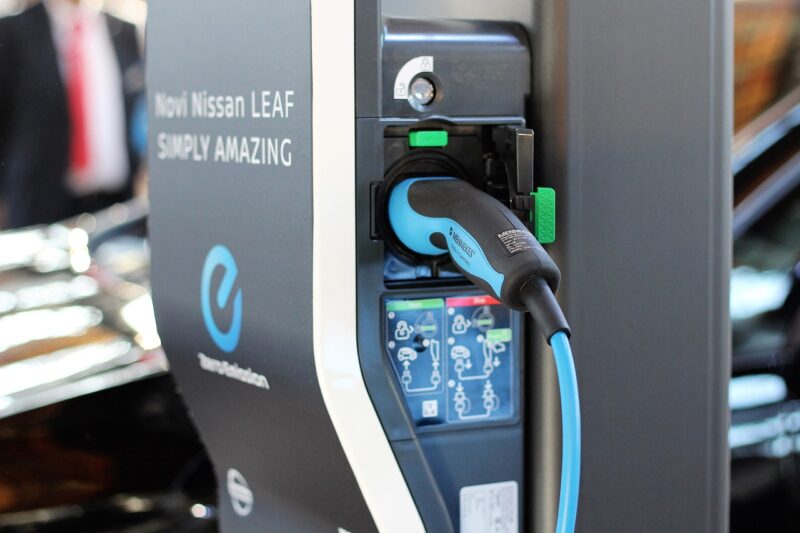The Benefits of Owning an Electric Vehicle in a Smart City
November 12, 2024

As urban areas evolve, so do the challenges of transportation, pollution, and sustainability. With the rise of smart cities—urban areas utilizing advanced technologies to improve the quality of life for residents—electric vehicles (EVs) are becoming an increasingly attractive option for city dwellers. This article will delve into the myriad benefits of owning an electric vehicle in a smart city, covering everything from environmental impact to financial savings.
1. Understanding Smart Cities
Before diving into the benefits of EV ownership, let’s first define what smart cities are. Smart cities leverage technology and data analytics to enhance urban living, improve public services, and meet the needs of citizens. Key features often include:
- Connected Infrastructure: Roads, traffic lights, and public transport systems equipped with sensors and IoT devices to monitor real-time data for efficient operations.
- Sustainable Urban Mobility: Encouraging the use of public transport, biking, walking, and electric vehicles to reduce congestion and pollution.
- Smart Energy Solutions: Utilization of renewable energy sources and energy-efficient systems to power homes and transportation.
These attributes make smart cities ideal environments for the adoption of electric vehicles, which play a significant role in addressing urban challenges.
2. Environmental Impact: A Cleaner City
In an era where climate change and urban pollution dominate discussions, the environmental benefits of electric vehicles are increasingly relevant. Here are some of the ways owning an EV contributes to a cleaner city:
- Reduced Emissions: EVs produce zero tailpipe emissions, which significantly lowers air pollution levels in cities, leading to better air quality and improved public health.
- Lowering Carbon Footprint: Although manufacturing EVs has an environmental cost, over their lifetime, they tend to produce fewer greenhouse gas emissions compared to traditional gasoline-powered vehicles due to ongoing advances in renewable energy and battery efficiency.
- Noise Pollution Reduction: Electric vehicles operate much more quietly than their gas-powered counterparts, contributing to a more peaceful urban environment, particularly in densely populated areas.
By decreasing pollution levels, EVs help create a healthier living space for all residents.
3. Cost-Effectiveness: Savings that Add Up
Owning an electric vehicle can be financially beneficial in the long run, especially in a smart city environment where infrastructure supports EV usage:
- Lower Fuel Costs: Electricity is generally cheaper than gasoline, making it more cost-effective to power electric vehicles. Many EV owners report significant savings in monthly fuel expenses.
- Tax Incentives and Rebates: Many municipalities offer tax credits, rebates, and incentives for EV purchases, reducing the overall cost of buying an electric vehicle.
- Reduced Maintenance Costs: Electric vehicles have fewer moving parts than internal combustion engines, resulting in lower maintenance and repair costs over time.
- Access to HOV Lanes and Reduced Fees: In many smart cities, EV owners enjoy access to high-occupancy vehicle lanes, easier parking, and reduced toll fees, making daily commutes more efficient and affordable.
These cost savings create a compelling financial argument for potential EV owners.
4. Advanced Infrastructure: EV-Friendly Facilities
Smart cities are equipped with the necessary infrastructure to support electric vehicles. This includes:
- Extensive Charging Networks: With multiple charging stations located throughout urban areas, range anxiety is minimized, enabling easier access to charging.
- Integration with Public Transport: Many smart cities incorporate electric buses and trams, creating seamless connections between public transport and personal vehicles, fostering an electric mobility ecosystem.
The availability and convenience of EV-friendly facilities make the transition to electric vehicles smoother and more accessible for residents.
5. Supporting Sustainable Practices and Innovations
Owning an electric vehicle also means supporting and participating in a broader movement towards sustainability that smart cities endorse:
- Promoting Green Technology: By opting for EVs, residents endorse technological advancements that align with sustainability goals, paving the way for innovative solutions in transportation and energy management.
- Community Initiatives: Smart cities often host programs and community initiatives aimed at promoting eco-friendly practices, and as an EV owner, you can participate in these efforts, fostering a culture of sustainability.
By choosing electric vehicles, residents actively contribute to the reduction of their city’s carbon footprint and promote responsible urban living.
6. Enhanced Quality of Life
The collective effect of reduced pollution, improved mobility, and smart infrastructure leads to a better quality of life for all residents:
- Health Benefits: Better air quality translates to better health outcomes for residents, reducing respiratory issues and improving overall well-being.
- Increased Green Spaces: With fewer gas-powered cars on the road, cities can reclaim land previously dedicated to parking lots and roads, creating more parks and green areas for recreation and relaxation.
- Community Engagement: Initiatives aimed at promoting sustainable transportation create opportunities for residents to engage with each other and local businesses, fostering a sense of community pride and interconnectedness.
Enhanced living experiences are one of the greatest gifts a smart city can offer to its residents, and electric vehicles play a crucial role in achieving this outcome.
Conclusion
Owning an electric vehicle in a smart city provides numerous benefits, ranging from environmental advantages to financial savings and improved quality of life. As cities continue to innovate and evolve for the betterment of their residents, embracing electric mobility will be essential in creating more sustainable, livable, and connected urban areas. By choosing to drive an EV, you’re not just investing in a vehicle; you’re investing in a greener future for your community and the generations to come.
By understanding the advantages of electric vehicles and taking advantage of the supportive infrastructure in smart cities, individuals can contribute significantly to creating sustainable urban environments that prioritize health, efficiency, and connectivity.






